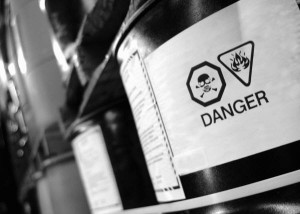 Any manufacturer who produces and sells consumer goods in the UK, has to comply with strict product safety laws or face some potentially serious consequences.
Any manufacturer who produces and sells consumer goods in the UK, has to comply with strict product safety laws or face some potentially serious consequences.
You may be surprised to see just how many manufacturers have to warn of a product defect and arrange for a recall by advertising and reaching out to consumers who they know have bought this particular item.
Product liability laws
Whilst there are literally millions of different products available for UK consumers to buy, the current product liability laws are considered to be fairly robust in providing a clearly defined procedure regarding the issue of compensation for anyone affected by a defective and dangerous product.
Product liability laws are designed to ensure that manufacturers are held accountable for producing and selling a defective items which subsequently causes a consumer to suffer an injury or health problems.
The basic premise of this legal framework is that a manufacturer, seller or distributor of a faulty product could be held liable if a person is injured by that product, even when it could be argued that the defendant did everything they could to prevent the defect happening in the first instance.
Problems with recalls
One of the major issues facing consumers and something that is a real dilemma for responsible manufacturers and distributors, is the fact that the average success rate of product recalls is very low.
If you take electrical items for example, which have the capacity to be very dangerous if they catch fire or give someone an electric shock, the average success rate for an electrical product recall is often well below 20%.
Websites like Electrical Safety First are designed to make consumers aware of problems with faulty electrical products and then there are bodies such as the Food Standards Agency, who try to make consumers aware of potential issues with food products which could present a hazard if consumed.
The problems with these recalls is that although the information is out there if you search for it, the chances are seemingly about 80% that you may well be unaware that the hairdryer you are using could catch fire or the butter that contains plastic parts could present a choking hazard.
Case to prove
The product liability laws are primarily in place to protect consumers from products which are not fit for purpose and they are also there to provide guidelines for when an unexpected problem occurs and a responsible manufacturer attempts to recall the product in question.
The manufacturer or distributor of the faulty product will not automatically be proven liable although if they fail to properly warn consumers about the dangers of the product that they have discovered, that would certainly make them vulnerable to a claim for compensation.
The legal complexities of making a claim in relation to a faulty product which has caused you to suffer an injury or related health problems, mean that you should definitely seek the advice and service of a specialist legal firm with experience in this field of consumer law and experience of winning compensation for consumers who have suffered in some way.
Chloe Bartlett is studying law at university and should be graduating in 2 years. She shares her growing knowledge by writing for a range of blogs in her free time.
Learn more
A product recall can deal a significant blow to the bottom line of a company – as well as that company’s reputation. When something goes wrong w ...
The most important thing every business owner must do is keep the customers happy. Unfortunately, this is impossible to serve them if you don’t kn ...
Social commerce CRM is an important tool for companies to improve their interactions with customers and to follow the latest consumer trends. I ...
In Internet more and more people using multimedia devices. Visual and multimedia content are becoming more important (over 40% of Internet traff ...
Dealing with debt settlement firms can prove a risky practice. Sometimes, such firms and companies promise more than they can provide to their&nbs ...







